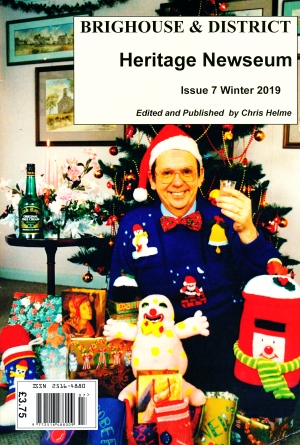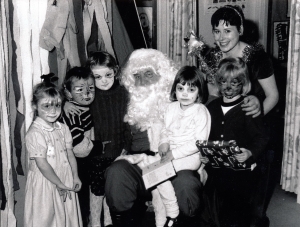
Talk Subjects
Chris Helme
The Aldbourne Band was formed in the middle of the 19th century by the village church organist, Richard Brown-Bunce. Originally made up from a variety of instrument types, including clarinet and flute, the Band gradually evolved, as most English Bands did around the turn of the century, into the familiar format based around 3-valved brass, trombone and percussion.
The first contest the Band entered was before the First World War and during the ’20s and the ’30s, the Band achieved great acclaim performing at the Crystal Palace, London. The Band maintained a consistently high standard, competing locally and nationally, regularly winning prizes and in 1963 was promoted to the Championship Section of the national organisation.
In the early eighties, the band was at the height of its game when it was placed first in the West of England Championship Section and consequently qualified to perform in the National Finals at the Royal Albert Hall. Out of a movement of some 800 bands, the best two from each region (18 Bands in total) perform at the National Finals. By the year 2000, the band held a ranking of 5th place in the West of England Championship Section, drawing in players from the North Wiltshire and Berkshire areas and remains a formidable force in the contesting arena.
We have two tracks from the band’s 2014 ‘100% Christmas’ CD on this week’s show.
A Festival of Fanfares and Carols which features the Cory Band, the Treorchy Male Voice Choir and the International Songsters of the Salvation Army. This CD was released in 2016 and is packed with music that most brass bands play for the festive season. But, being Cory Band it also has music that has been arranged for the band by the band's conductor Philip Harper. Many of these pieces of music will become standards for other bands Christmas repertoire to play as well.
This CD met with rave reviews when it was released and is still available from
https://coryband.com/product/festival-fanfares-carols/
On this week's show we feature 'Hark the Herald Sing - Mendelssohn arr: Willcocks trs-Ray Steadman-Allen
These days when any of our town centre shops close, unlike many other West Yorkshire towns where the empty shops remain unoccupied for months or even years, new businesses soon move in. Can you remember these shops? These businesses either closed through difficult trading conditions or the owners retired.
Guy d'Hardelot (August 1858 – January 7, 1936) was the pen name of Helen Rhodes (née Helen Guy), a French composer, pianist, and teacher.
She was born to an English father and a French mother. She was born at Château d'Hardelot, near Boulogne-sur-Mer. This old castle, from which she took her pen name, was once occupied by Henry VIII and Anne Boleyn.
At the age of fifteen she went to Paris, where she studied at the Conservatoire de Paris under Marie Renaud-Maury (1852-1928) and came under the notice of Charles Gounod and Victor Maurel, who were much impressed with her ability. She also met Jules Massenet, who encouraged her to compose. On coming to London, she became a pupil of Clarence Lucas. Emma Calvé was a good friend to d’Hardelot and did much to bring her songs into notice.
Most of her life, d'Hardelot was engaged in teaching singing and diction at her home in London, and many of her pupils attained success. In 1896 she toured the United States with Calvé. Her first real success as a composer was won with Because, though her song Sans Toi had previously been favourably received. Among her other successes may be mentioned I Know a Lovely Garden, I Think, I Hid My Love, Dawn, and A Bunch of Violets.
She was singularly successful as a writer of songs, in which she combined French delicacy with English solidity. Few women composers became more popular in the early 20th century than did d'Hardelot, and her success was won on merit alone. In spite of the help of many friends, it was some time before she achieved this success.
We feature her composition Because on this week’s show.
Just over three-years ago I had a book published about the lighter side of my 30 year policing career which for a local book sold quite well. I then had the bright idea that it might be possible to turn it into an audio-book. Seeking out advice which suggested that if I could find someone to do it just get on with it.
Having found a wonderful recording technician, the next step was to consider who would do the voice for it. As I am now delivering 60 / 70 public speaking presentations annually and speaking on cruise ships who better, do it yourself.
it has taken almost twelve-months to complete this self-financng project. The whole recording project with opening music and closing music was completed today. In due course selected sections of the audio-book will appear on my website.
Stephen Collins Foster (July 4, 1826 – January 13, 1864), known as "the father of American music", was an American songwriter known primarily for his parlour and minstrel music. He wrote more than 200 songs, including "Oh! Susanna", "Hard Times Come Again No More", "Camptown Races", "Old Folks at Home" ("Swanee River"), "My Old Kentucky Home", "Jeanie with the Light Brown Hair" and many of his compositions remain popular today. He has been identified as "the most famous songwriter of the nineteenth century" and maybe the most recognizable American composer in other countries. His compositions are sometimes referred to as "childhood songs" because they have been included in the music curriculum of early education. Most of his handwritten music manuscripts are lost, but editions issued by publishers of his day can be found in various collections.
Foster became ill with a fever in January 1864. Weakened, he fell in his hotel in the Bowery, cutting his neck. His writing partner George Cooper found him still alive but lying in a pool of blood. Foster died in Bellevue Hospital three days later at the age of 37 Other biographers describe different accounts of his death.
When Foster died, his leather wallet contained a scrap of paper that simply said, "Dear friends and gentle hearts", along with 38 cents in Civil War scrip and three pennies
Foster was buried in the Allegheny Cemetery in Pittsburgh. After his death, Morrison Foster became his "literary executor". As such, he answered requests for copies of manuscripts, autographs, and biographical information. One of the best-loved of his works was "Beautiful Dreamer", published shortly after his death.
First fully professional U.S. songwriter. His music is featured this week in a Gordon Langford arrangement called A Stephen Foster Fantasy.
Cory Band MD: Philip Harper
Tewit Silver Band MD: Martin Hall
Uppermill Band MD: Dean Redfern
South Yorkshire Police MD: Leigh Baker
Unison Kenneil Band MD: Raymond Tennant
Christmas time at Lightcliffe C of E School - This wonderful photograph of some of the young students at the school complete with painted faces all pose with Fathe Christmas - an occasion they will not have forgotten. Left to Right: Bethany Berry, Thomas Thorns, Emma Thorns, Jade Rose who is sat on Santa's knee, Hester Sharpe and teacher Sue Fox as the fairy.. This is 21 years ago - if the children were 4/5 years on the photo they will now be 25/26 years old - I wonder where they are now?
Talks Available
All the presentations are timed to last up to an hour except where shown - questions are gladly taken after the presentation. All have been presented to male, female and mixed audiences of varying age groups.
-
A Postcard from the Past
The Sunny Vale Pleasure Gardens, Halifax - Yorkshire’s Alton Towers of the…
-
All in a Days Work
Reminiscences from 30 years in the Police Service – (humorous lecture presentation)…
-
Legends from the world of Brass Bands
(Info-tainment – digital slides & music) – 1 hour presentation.
-
A Week in May
A story based on the Murder of Lord Frederick Cavendish (of the…
- Memories of Christmas Past
-
The Road to Publication
In 1979 I was asked to assist in presenting a series of…
-
How we used to live
We have all seen and experienced changes in our lives. Bring back…
- Holiday Memories from the Past
-
Other Folks Rubbish (Not suited to a Zoom presentation)
With a local history theme… – (thought provoking humorous lecture presentation) –…
- So you want to be a Pirate ? - The life of a Pirate was not all that it seemed
- Superstitions, New Year Resolutions and the Origins of St Valentine's Day
- Brighouse at Work
-
Sorry but I am not able to accept any more face to face talk bookings at the present time ONLY ZOOM TALKS































